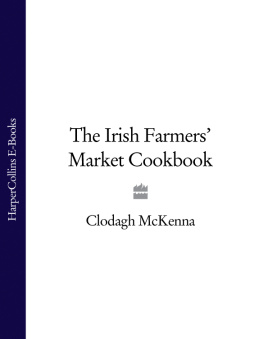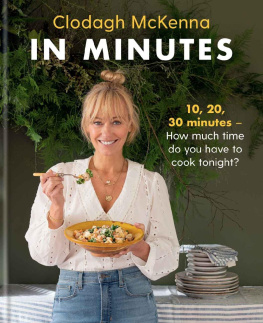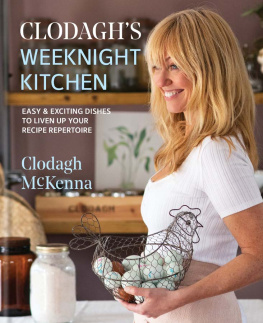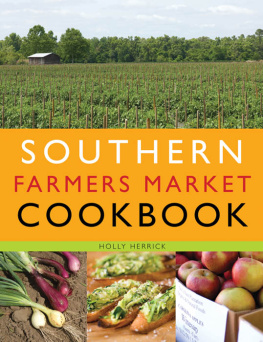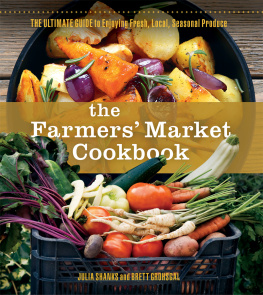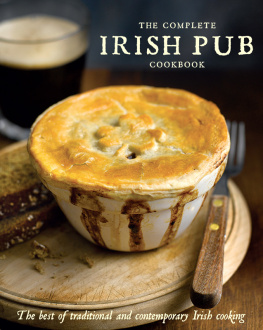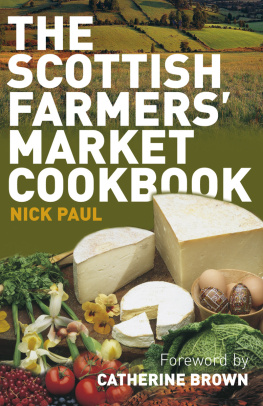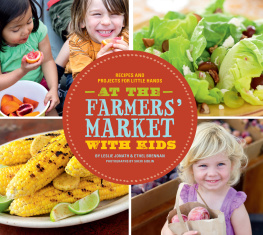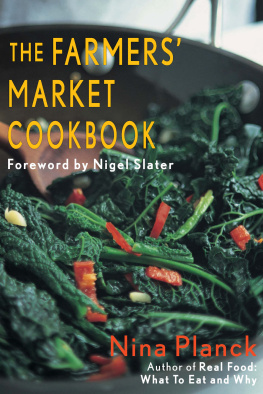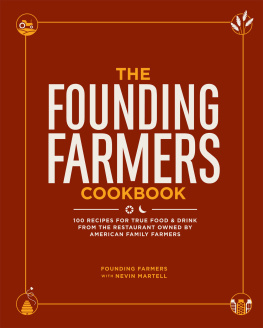I first heard about farmers markets when I was working as a chef at Ballymaloe House. There was a lot of talk in the kitchens about Midleton Market, and the creative, passionate producers who were selling fantastic cheeses and artisan foods. I was, to say the least, curious. My big chance to get involved with the market came when Myrtle Allen, proprietor of Ballymaloe House (an incredible guest house with an award-winning restaurant), asked me to look after her stall selling freshly baked breads one very cold Saturday before Christmas. The atmosphere was buzzing; the stall holders were so enthusiastic, so keen to tell you about their produce, how it was made, the best way to cook and eat it, how to store it and where they sourced ingredients. These people were connected to the food they were sourcing, making and selling.
They knew every detail, down to the name of the person who grew the herbs they used to cure the bacon in the smokehouse, and the type of wood they used and exactly where they got it. Try asking those questions in your local supermarket! There was a feeling of the stall holders being part of an underground food revolution and by the end of that freezing day I was completely hooked. So, I got myself a stall. I would finish service at Ballymaloe on a Friday night and go right to work making fresh pasta for the market. Id be at the market by 8am, sell it all by midday, pack up, and be back at Ballymaloe in time for service at 2pm. People thought I was completely mad but I was on a high! I left Ballymaloe about six months later to do the markets full time.
For the following three years my life consisted of making produce to sell at my stall and kick-starting other markets around the country. I feel passionately that good food should be available to everyone. Our Irish food culture is very much alive but needs to grow. For that to happen we need to buy and consume Irish produce from farmers markets so that we can be sure the money goes back into the industry and not into the pockets of multinational supermarket chains. The farmers markets are not just for foodies they are for all of us. Further benefits of the farmers markets include:
- The food hasnt travelled several thousand miles so it is fresher and you are helping the planet by saving food miles.
- The food is seasonal, picked for optimum flavour and nutritional value.
- It puts you, the consumer, back in touch with the producer, so you know where your food is coming from and how it was produced.
- There is a fantastic range of produce available: meats; smoked and fresh fish; a staggering range of dairy produce, particularly cheese; artisan breads; preserves; ready meals; oils and, of course, fruit and vegetables.
- Some of our greatest producers have stalls at the farmers markets; such as Sheridan cheesemongers, Ballymaloe Cookery School, Gubbeen Farmhouse Products and Belvelly Smokehouse to name just a few.
- You will be putting money back into the community.
- You will be keeping Irish cultural and culinary traditions alive.
Artisan producers and farmers markets have revitalised local rural economies, providing employment and attracting younger generations back in droves.
The government is desperate to find a way to encourage young generations to stay on family farms, and these local traditions provide fantastic opportunities. Top chefs are beating a path to stall holders to get the best produce, and tourists are flocking to buy and taste locally produced food, so this is clearly an industry worth supporting and encouraging. So why is it that the government doesnt take the farmers markets seriously? Why doesnt it get involved with the markets and support artisan producers? Why isnt the government working alongside the producers to come up with regulations that meet the producers needs as well as adhere to legislative requirements? The way to show the government how serious we are about our food culture is to support it by using the farmers markets. The markets have reunited us with producers and given us back a connection with the food we are consuming. Ive written this book as a celebration of all the fantastic produce we have in Ireland and as an encouragement for others to start searching out their local markets. The recipes are a guide for what can be cooked at home using local and seasonal produce.
If you dont happen to live in Ireland, seek out your local market and ask the producers to suggest substitutes for produce that you may not be able to get. The best lesson that I ever learned as a chef was that if you use the best of local and seasonal ingredients you cant go too far wrong. Plus, nothing is more rewarding than sitting at home with your family around the kitchen table, talking about where your food came from and looking at the delight on their faces as they take their first bite. I have written profiles of my favourite producers who have changed my idea of food and who have helped create this Irish food revolution. I hope that it gives you an insight into these fabulous characters. You will also find lots of useful information at the back of this book: recommendations of places to eat, how to find the markets and how to contact the producers.
I hope this book opens your eyes to the wonderful produce we have in Ireland, just as the last six years have done for me 
Many of the food products sold at farmers markets are from artisan producers who are members of the Slow Food movement, which was started by Italian philosopher Carlo Petrini. He wanted to educate people about the great tradition of artisan food production that still thrives in the Italian countryside. Petrini saw young Italians queuing outside a notorious fast-food burger joint and it occurred to him if people knew about great artisan food, if they tasted the difference, they might just choose to eat it instead. By celebrating and promoting artisan produce, Slow Food ensures that these delicious foods continue to be enjoyed and are not lost under an avalanche of standardisation, bureaucratic hygienics and over-commercialisation.
Pictured left: A stall holder takes a break in her Slow Food Ireland apron.
All the recipes in this book are based on ingredients youll find at farmers markets. I choose to buy free range or organic produce, but what do these terms mean? Put simply, free range refers to meat, poultry and game that has been allowed to roam outside, rather than raised in contained areas. Organic means that the food has been produced to set specifications and without the use of synthetic chemicals, such as fertilisers, pesticides, antibiotics or hormones. Rather confusingly, products can be both organic and free range.

